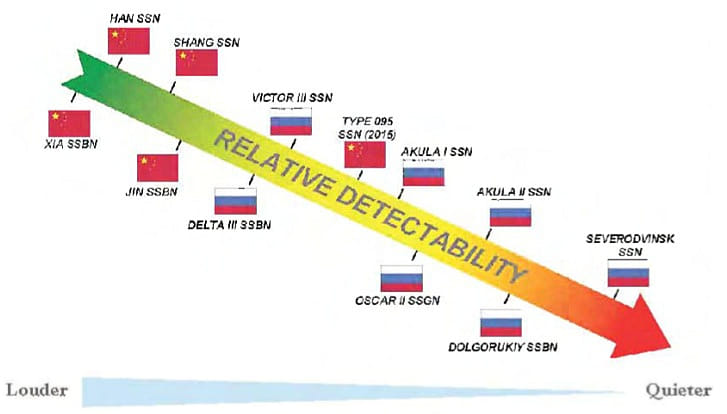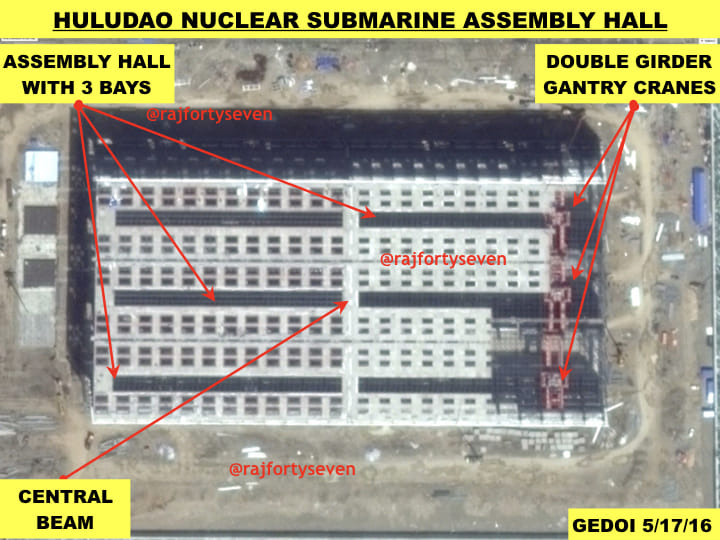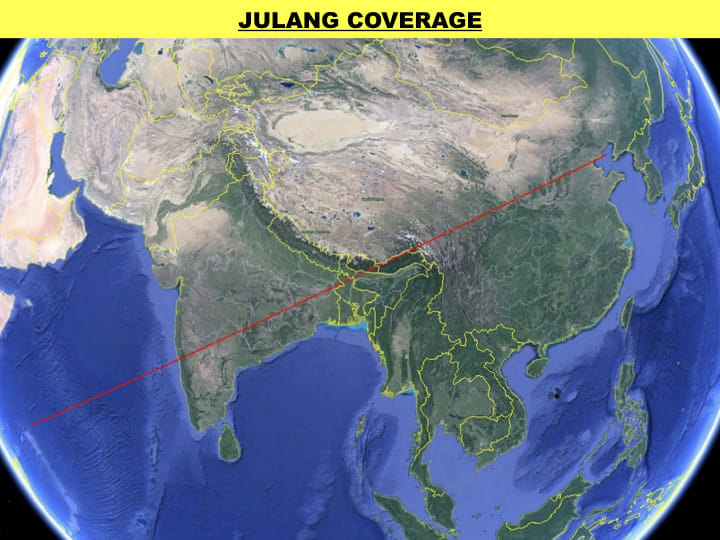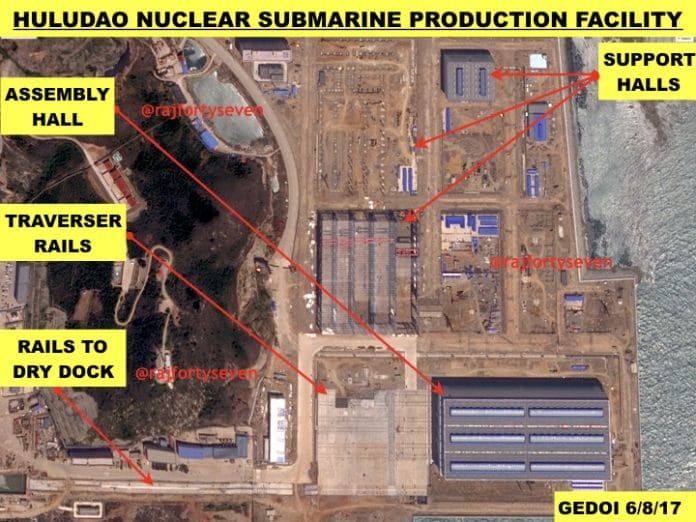Xi Jinping’s ‘China Dream’ gave boost to its Blue Water navy ambitions and funds were made available for the expansion of the nuclear submarine programme.
Every country with Blue Water navy ambitions needs nuclear submarines to carry ballistic missiles quietly closer to its adversary’s shores. And that includes China’s People’s Liberation Army Navy (PLAN).
China’s submarine force, especially the nuclear submarine force, has been derided by most Western analysts as the noisiest and therefore easily detectable. The chart below by the US Office of Naval Intelligence or ONI has been reproduced by many websites.

China has pursued construction of its nuclear submarines with a single-minded determination and speed. China’s nuclear submarines or SSN count varies from 11 to 13 with four Type 91 Han-class (one not active) and 8 to 10 Type 93 Shang-class variants.
The nuclear ballistic missiles carrying submarines or SSBN count is at least 7, with one Type 92 Xia-class and rest Type 94 Jin-class. The nuclear submarines of PLAN have all been constructed at Bohai Shipbuilding Heavy Industry Company Limited (BSHIC) at Huludao. The BSHIC is probably a subsidiary of China Shipbuilding Industry Corporation or CSIC.
Expansion of production facility
The Huludao facility felt the need for additional space when it started construction of Type 94 Jin-class submarines some time in 2005.Although the need for expansion was felt a while back, the project was constrained by the availability of funds. The expansion work was thus limited to land reclamation only, which continued from 2007 to 2013.
Xi Jinping’s ‘China Dream’ gave boost to the Blue Water navy ambitions and possibly funds were made available for the expansion of BSHIC’s nuclear submarine programme. The new facility on the Eastern side of Bohai shipyard started construction in mid-2015. The construction became visible and clear by mid-2016.
Gigantic new facility
The gigantic nature of this facility was revealed when the assembly hall could be compared with Hall No. 42 of Russian Severodvinsk submarine construction facility.
The size of BSHIC Huludao hall is 285 m x 130 m with more than 40,000 sq m area.
The height is almost double the previous halls in that location. It has three bays with large overhead double girder magnet gantry cranes fitted it, which could easily shift/move submarine modules to and fro. The width of girders at the top of gantries is 9 m, suggesting they could lift very heavy loads.
There is another hall of 200 m x 170 m being constructed to the north of this assembly hall. This probably will produce modules for submarines. It has five bays, two of which are smaller than others. Both the halls have traverser rails in front for transfer of modules from one hall to the other.
Thus this new assembly hall could possibly construct six nuclear submarines at any given time. The hall not only provides the workers and equipment from harsh weather conditions of Huludao but also provides cover from the prying eyes of satellites that could learn about PLAN submarine progress.

New submarine revealed
A closer look while assessing this facility revealed some parts, possibly of a new submarine. The width of these parts is almost 16.5 m, suggesting the probable beam of the new submarine is more than 16.5 m. It is assessed that this new submarine which possibly is the new nuclear submarine of China’s PLAN Type 96 which is rumoured to have 24x Julang 3 or JL 3 ballistic missiles with an estimated range between 8,000 km to 12,000 km.
A 16.5 m beam with approximately 4 m of hump would easily accommodate every Dong Feng or DF missile in China’s nuclear ballistic missiles inventory.
Implications
It is assessed that the new submarine production facility constructed at Huludao will enhance the speed of the Chinese PLAN nuclear submarine production by at least six times. Any increase in China’s equipment profile would have an effect on India’s security scenario. This particular capability would increase China’s abilities to snoop on Indian naval activities in the Indian Ocean Region and the Arabian Sea.
China’s nuclear submarines have been visiting Karachi and Colombo. China has also been a supplier of submarines to Pakistan and Bangladesh. It will be interesting to watch if China would proliferate the new nuclear submarines to its favourite, Pakistan. The Julang 2 and 3 with 8,000 km or more range can cover the entire IOR with ease. The looming threat of Julang missiles will be omnipresent.

(Col Vinayak Bhat (retd) is a Military Intelligence veteran of the Indian Army with vast experience of satellite imagery analysis. He has worked as a Chinese interpreter and is a specialist on PLA and Pakistan’s armed forces. He tweets @rajfortyseven)






